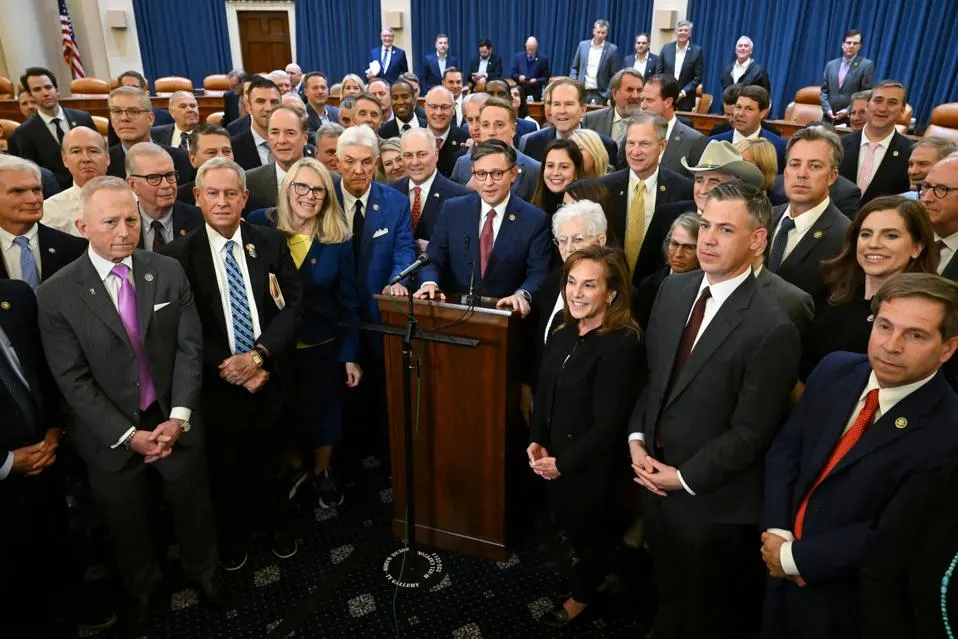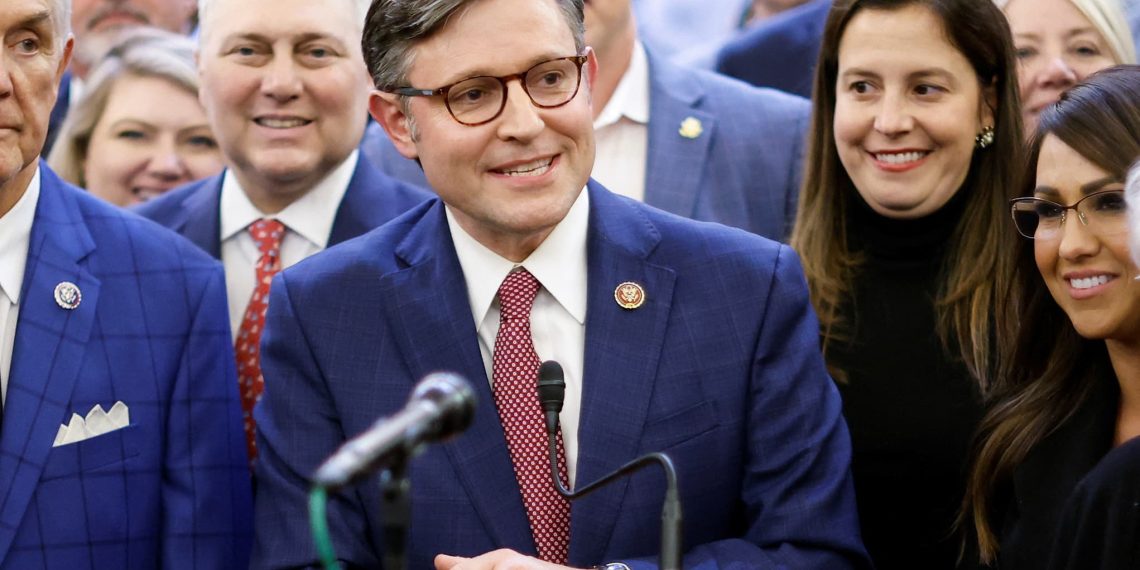In a closed-door meeting, House Speaker Mike Johnson delivered a decisive blow to the Senate’s bipartisan immigration deal, asserting it has “no way forward.” This revelation emerged as a significant setback to a national security package intended to unlock crucial aid for Ukraine, a matter of pressing concern amidst escalating tensions with Russia.
House Republicans, leaving the meeting, echoed Johnson’s sentiment, with Rep. Marjorie Taylor Greene stating, “it’s absolutely dead,” and Rep. Roger Williams emphasizing that “it’s not going anywhere.”
Former President Donald Trump has been actively urging Republicans to oppose the Senate compromise, aligning with House Republicans’ dismissal of the deal. The rift within the GOP raises questions about the party’s unity and its stance on critical issues like national security and immigration.
Despite the Senate negotiators successfully reaching a deal to address illegal migrant crossings at the southern border, House Republicans remain adamant about adopting a hardline conservative approach, as reflected in HR 2. This conservative immigration bill, however, faces significant challenges in the Democrat-controlled Senate.
President Joe Biden expressed support for the Senate deal, praising its toughness and fairness. The proposed measures include expediting the asylum process and providing emergency authority to shut down the border in response to escalating migrant encounters.
While House Republicans, including prominent figures like Jim Jordan and Byron Donalds, criticize the deal, Trump advocates for rejecting any compromise, further intensifying the internal divisions within the GOP.

As tensions escalate, Senate GOP leaders are considering alternatives, contemplating separating the border deal from funds allocated for Ukraine and Israel.
This strategic move aims to navigate the contrasting perspectives within the party, highlighting the complexities surrounding immigration, national security, and the GOP’s response to these critical issues.





